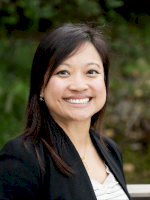
Stanford university
Mountain View, United States
Dear fellow WMS colleagues,
When I think of WMS, it conjures up many fond memories of excitement in science, fellowship and ideation. WMS was founded on the love of arts- science and has grown to be the leading congress for neuromuscular researchers and clinicians to learn and collaborate.
“…To know even one life has breathed easier because you lived. This is to have succeeded” -Ralph Waldo Emerson’s Success poem encompasses the empathy for humanity; love of arts and science and is fully embraced by the history and mission of WMS, to me. WMS is where the translation of science was born with my first presentation on MDX mice and exercise. Now, my research is in understanding traditional clinical outcomes and natural history which helps me to develop new outcomes/methods to improve Clinical Outcomes Assessments (COA) through novel digital and machine learning approaches allowing for quality data integration and discovery of biomarkers. This congress has shaped my career as a translational scientist from bench to bedside to community. I believe in learning from the past and innovating for the future. I have been inspired by the forward thinking of WMS exhibited by having an executive committee who represents its diverse members. For this reason, I would be honored to have the opportunity to represent this brilliant community as part of the WMS executive committee.
I believe progress is only achieved through collaboration among physical therapists, physicians, industry, academia and patient communities. This partnership is key to patient centered innovation, discovery, equity and access to care. Only through this type of collaboration may we bridge the gap in social and health economics that limit treatment access, academic independence and accelerated developments toward safe and effective treatments.
Dr. Tina Duong is the Director of Clinical Research Outcomes and Development at the Division of Neuromuscular Medicine at Stanford University. She has developed her academic career on a strong foundation of research and evaluations in patients with neuromuscular disease. Advocacy drives her passion to collaborate, educate and innovate. Her expertise and accomplishments include the development of standardized measures and operations for validation of critical clinical endpoints used in large international natural history studies and clinical trials. This work has led to improved understanding of disease progression and function. She has ongoing efforts in leading clinical endpoints development with numerous collaborations among academicians as a key opinion leader in many neuromuscular disorders including FSHD, DMD, SMA, CMD, DM, and LGMD. She has unique expertise in her extensive global collaborations across academia and industry. These interactions provided insights to identify the gaps in COAs for different disease cohorts which has led to key accelerated developments of COAs used in current NM clinical trials.
Her research interests include investigation and development of novel approaches to understanding human performance in NMD. This includes understanding the kinematics of movement, impact of disuse atrophy, sarcopenia and mitochondrial biogenesis on muscle growth/degeneration in neuromuscular disease. These insights will provide a personalized medicine approach on musculoskeletal contributions that result in loss of muscle function, fatigue and independence.
Research benchmarks: >100 peer reviewed journals, book chapter, conference proceedings H-index: 21 (2242 citations - google scholar).